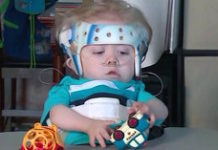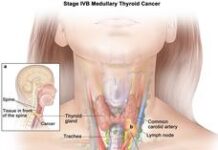
Doctors diagnose cancer in a dinosaur
The horned dinosaur, originally excavated in 1989, was originally thought to have a leg fracture that hadn’t healed properly. But a team of scientists have since diagnosed the plant-eating Centrosaurus with osteosarcoma, a type of bone cancer. The dinosaur, which lived around 77 million years ago, is thought to be one of the oldest examples of cancer. Scientists say studying the fossilised remains could help to uncover more about the evolutionary origins of disease. Read the full story at Science Mag.
NHS to roll out “COVID-friendly” cancer treatments
The £160 million initiative will pay for drugs that require fewer hospital visits or have fewer side-effects affecting the immune system, both of which can leave patients more susceptible to infection. Since the pandemic began, almost 2,000 people have been given these therapies, which has allowed their treatment to continue rather than being delayed or halted.
Text reminders boost screening uptake
Campaigners are urging the NHS to send text reminders to everyone invited for screening, after the SMS iniative boosted cervical screening participation by around 5% in a recent study by Imperial. Currently, only 34% of GP practices are able to send text reminders for screening invites. More on this at The Times (£).
Google to block junk food ads for under-18s
The Daily Mail reports on Google’s ‘junk food crackdown’, banning junk food adverts being shown to children in the UK on all its platforms, including YouTube. The announcement comes a week after the UK Government launched a new strategy to tackle obesity, including restrictions on junk food marketing on TV and online. While the move is a step in the right direction, age verification doesn’t always work as well as it should, which is why we’ve called for a 9pm watershed.
Not all cancer patients ‘vulnerable’ to COVID-19
A group of oncologists have argued that not all cancer patients should be considered vulnerable to COVID-19, reports the Pharmaceutical Journal. They’re calling for evidence-based treatment decisions, which will be helped by the data collected on people with cancer’s experience during the pandemic. In similar news, BBC covered new study findings that suggest continuing chemotherapy and immunotherapy may not pose a risk for some cancer patients with COVID-19.
“The NHS must never again be a COVID-only service.”
Experts are urging NHS bosses not to impose the same mass closure of services that were introduced in March if a second wave of COVID-19 hits, reports The Guardian. We’ve blogged before about what needs to happen to get cancer services back on track during the coronavirus pandemic.
And finally…
More than two million people in England, Scotland and Northern Ireland can now leave their home and return to work, as shielding ends. People shielding in Wales have been advised to continue until 16 August. Read more at BBC.
Scarlett Sangster is a writer for PA Media Group







